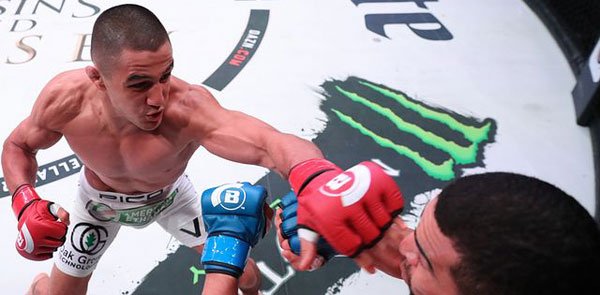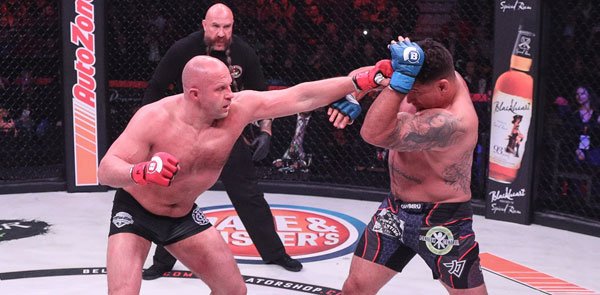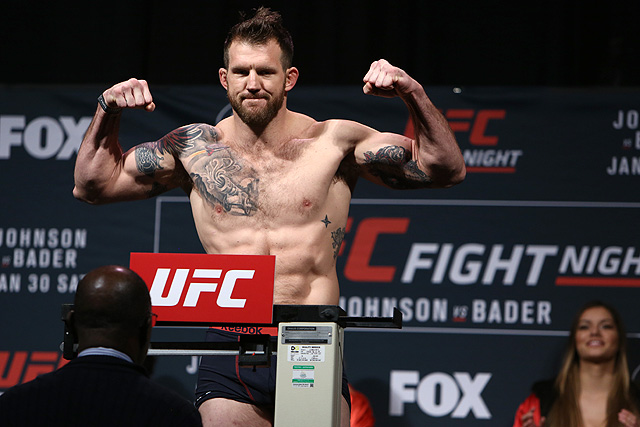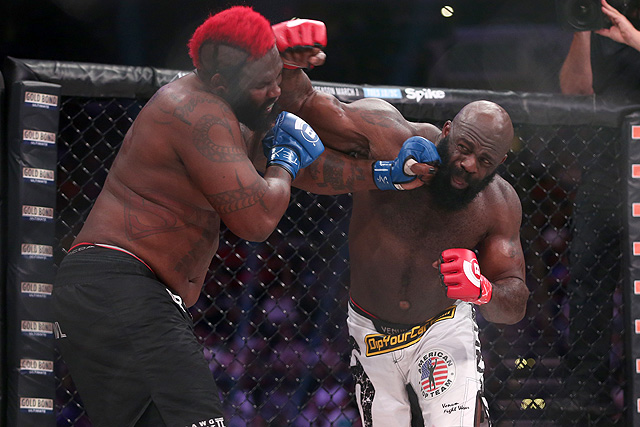There is no escaping the shadow of UFC 229. The MMA return of Conor McGregor against anyone would be a huge deal, but against Khabib Nurmagomedov, it almost justifies its Rogan-esque hyperbole as “the biggest fight in UFC history.” With a press conference scheduled this week that, unlike their first one, will be open to fanfare and all its attendant chaos, there is no doubt that all eyes will be turned toward Las Vegas.
While I wouldn’t blame anyone for forgetting about Bellator MMA, I would pity them. The sport’s perennial second banana has been quietly making strides to secure its spot through creative and intriguing matchmaking. In doing so, fans, fighters and the sport itself have benefitted.
Let’s get this out of the way: Bellator is not — and almost certainly will never be — a comparable competitor to the Ultimate Fighting Championship. The kneejerk criticisms that it is a home for second-rate talent, an island getaway for unsatisfied UFC castoffs and a retirement plan for stars of yesteryear are all basically accurate. Yet positioning itself as a UFC foil is not Bellator’s role, and it’s becoming increasingly evident that it really doesn’t need to be. The main card of Bellator 206 on Saturday proved as much…




